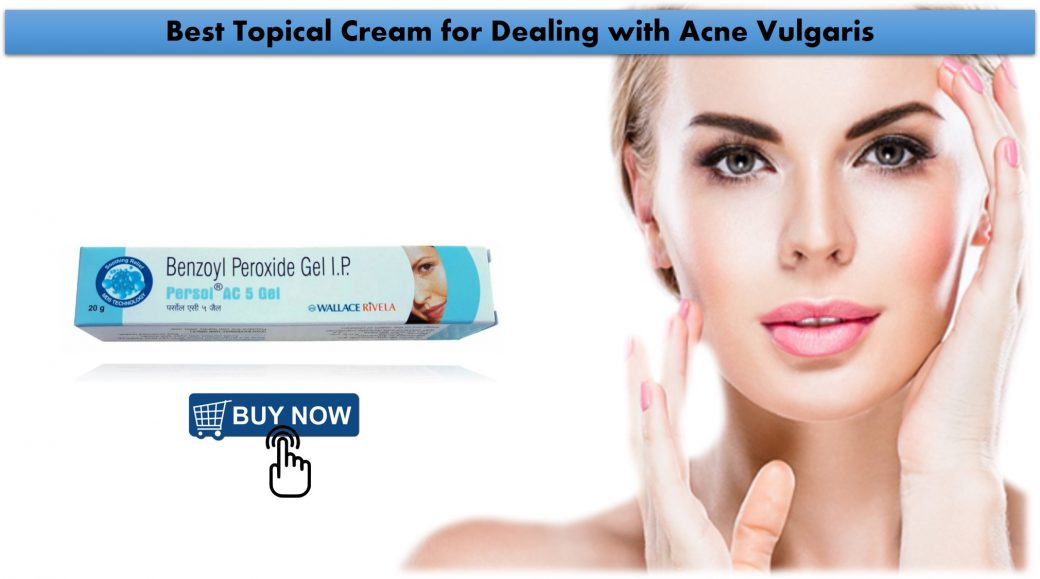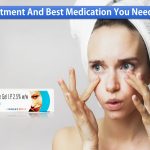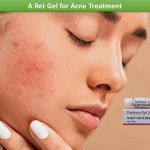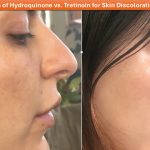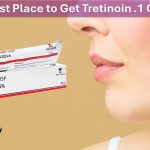For decades, Tretinoin has an excellent track record when it comes to treating acne. It is scientifically proven to reduce acne, usually over a period of 8 to 12 weeks. The anti-acne agent is well tolerated and has a limited range of potential side effects.
Contrary to the marketing promises of the complete elimination of acne, immediate results are just not the truth, which is a frustrating truth to anyone to anyone suffering through a breakout. The best acne treatments will include a regimen of products that can directly act on the acne’s root causes. Acne treatment should inhibit sebum production, limit the growth of bacteria, or encourage shedding of skin cells to open clogged pores. Because all medications come with side effects, any patient with acne should proceed with caution when trying tretinoin. People with any acne that leaves scars or that cause lowers your self-esteem or people with severe and persistent acne, need a dermatologist’s consultation.
Tretinoin- An Effective Anti-Acne Medication
If you have tried all the typical acne solutions including benzoyl peroxide, salicylic acid, and natural remedies, and still haven’t seen results, it might be time to switch to tretinoin, a powerful acne-fighting pharmaceutical ingredient that most dermatologists recommend. Tretinoin is a derivative of vitamin A and an effective topical prescription treatment that should be taken under the guidance of a dermatologist. The active ingredient not only treats acne but also effective in treating ageing issues like wrinkles and dark spots. It decreases the size of skin pores and increases cell turnover within them, which improve your skin and prevent the clogging of pores. It also helps in producing enough collagen that has been shown to reduce fine lines wrinkles, and hyperpigmentation.
What’s so Special About Tretinoin?
As mentioned above, tretinoin is an acid form of vitamin A, which is delivered to the skin in a gel or a cream. Its regular application stimulates normal maturation of skin cells. Topical tretinoin is an excellent treatment for pimples. Studies show that it works well to reduce acne with results usually noticeable in 8 to 12 weeks. It is considered extremely effective when combined with a second acne treatment such as clindamycin. In short, Tretinoin can be used as a first-line treatment for acne.
But due to the potential dangers involved, its necessary to get a dermatologist’s prescription before starting the treatment. Consultation of a dermatologist or a skin expert prior to treatment is important to ensure that you start with the best product that suits your skin types and types. Therefore, it is advised to receive proper skin treatment at an affordable price.
Tretinoin has been in the pharmaceutical industry for decades; it is most studies acne treatments. The active ingredient has been studied as both an acne therapy and for its anti-ageing benefits. It is best to use Tretinoin before going to bed. If you use it in the morning, exercise caution as the formulation can make your skin especially sensitive to sunlight. Apply at least SPF 15 sunscreen if you have black skin and sunscreen up to SPF 70 if you have a fair skin tone
Precautions For safe Tretinoin Use
Before you start using A Tretinoin cream, make sure you take extra caution since it may not be suitable for those with certain conditions. Avoid using tretinoin with a dermatologist’s advise if you are pregnant or breastfeeding. The formulation may get absorbed into the skin and harm your unborn baby. Do not use if you have other problems such as eczema, rosacea, and you are on other medications prescribed by a health care expert. Let your dermatologist or skin care expert know if you are allergic to other medicines before especially vitamin A drugs such as isotretinoin.
Consider applying a moisturizer if your skin becomes too dry. Pick one with water based that is fragrance-free as these are the best pick. Do not use oily creams that could cause clogging of pores. It is also a wise decision to avoid a cream that may dry your skin. Avoid applying to makeup or other cosmetic products at the same time you are using Tretinoin.
Stay away from alcohol, species, line, and menthol as they cause stinging, especially when you are using a tretinoin formulation. Other things to avoid include topical treatments like salicylic acid as these can reduce the effectiveness of Tretinoin. If they applied at the same time, it could lead to irritation of the skin. Note that dandruff shampoos have resorcinol or sulphur which need to be avoided while using A Tretinoin preparation.
The Conclusion
Acne treatments promise too good to be true. Numerous acne products are available to treat mild to moderate acne and periodic breakouts. Choose the one that adequately addresses your acne and helps prevent breakouts. Tretinoin can do the trick to help clear your skin, but it’s never enough to rely entirely on a single treatment. You still need complete skincare to keep your skin blemish free.

